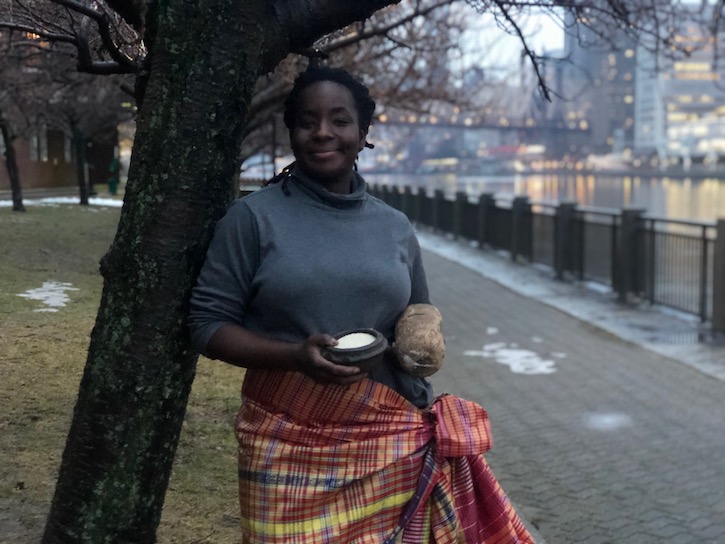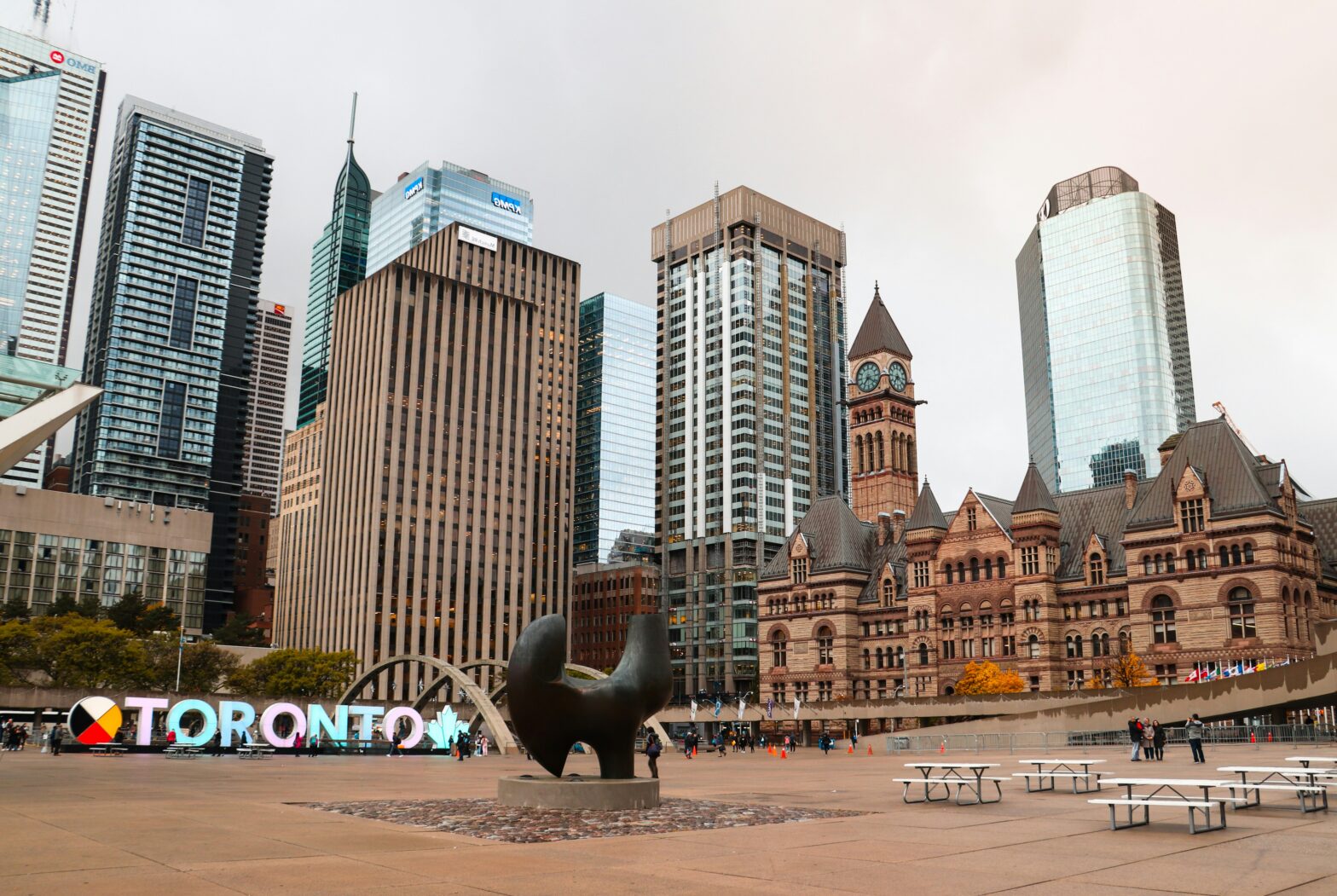New York City resident Beatrice Ajaero is proud of her Nigerian roots. So much so, she’s a mission to make West African food mainstream.
Her restaurant Nneji, located in Astoria, Queens, cooks up traditional food that is environmentally, socially, and economically sustainable. She also provides hundreds of meals for local shelters and people in need.
Popular West African dishes like egusi stew (melon seed), West African red stew, okra & spinach, yassa (onion, mustard, black pepper), and spicy goat stew— all served with a side of garri (cassava)— are some things you will find on her menu.
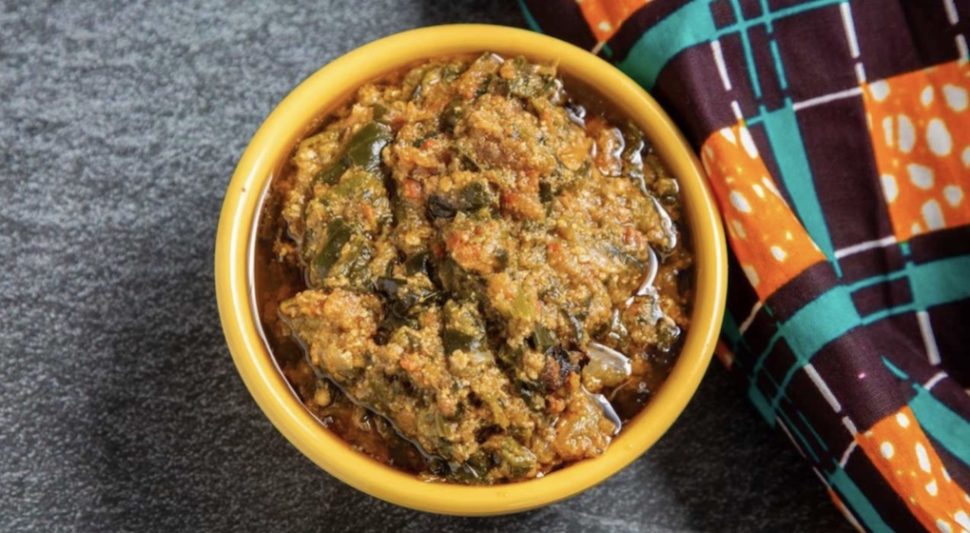
She recently opened Ibari, a boutique featuring African foods, decor, accessories and other items that hard to find.
We sat with Beatrice to learn more about her mission and the influence behind her business ventures.
Travel Noire: Where did the inspiration for Nneji stem from?
Beatrice: My inspiration stemmed from Nigeria. Food is the center of gathering and the center of community. Recreating the community eating found in Nigeria, here in the States, is what I aspire to do. Growing up in Harlem and living on Roosevelt Island, Sylvia’s and Accra Restaurant were community eating and gathering spots, that became my inspiration.
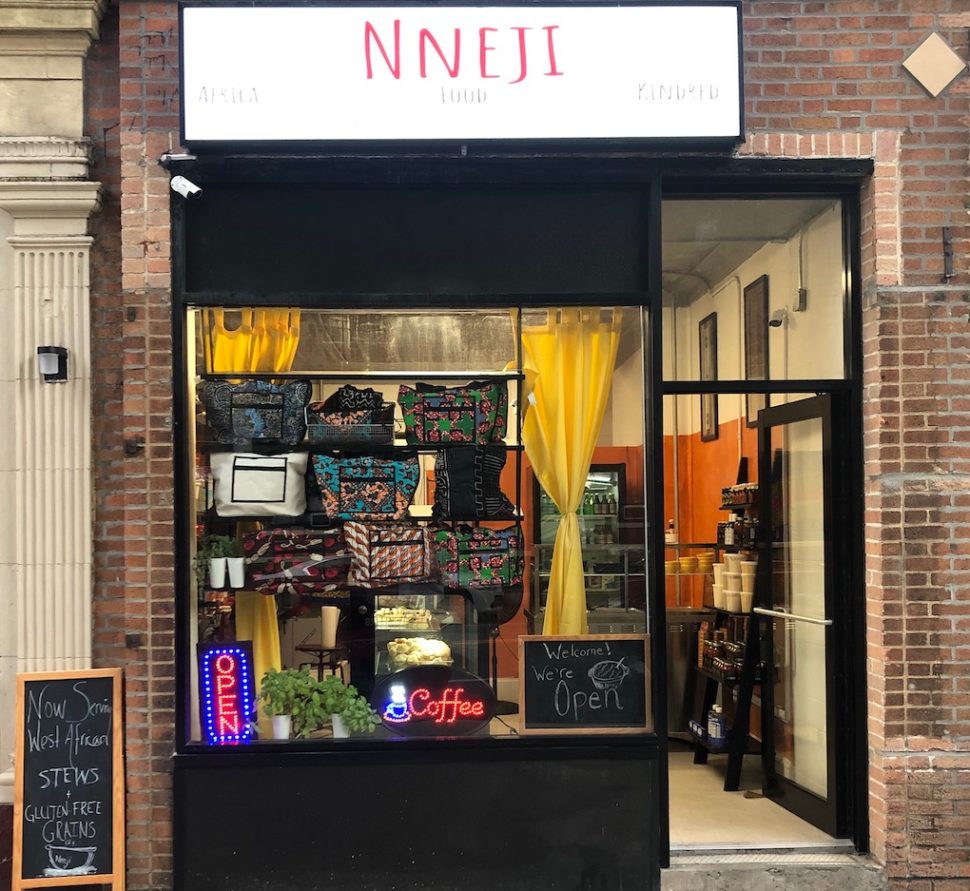
Travel Noire: How do you plan to take African food mainstream?
Beatrice: One guest at a time, one exchange at a time, one dish at a time. I want to create an exchange and conversation over food, breakdown the recipes, the why’s behind every dish and why they are special to African culture. I want to build a relationship with each customer, listen to how their culture mirrors mine and how it differs— because food connects all cultures and all people.
Travel Noire: What are your favorite dishes, and what would you suggest to someone who never had West African food?
Beatrice: Pounded yam and Fufu. Learning how to turn Fufu is a rite of passage in my culture. Traditionally, a women’s ability to make Fufu correlates with her ability to feed her family.
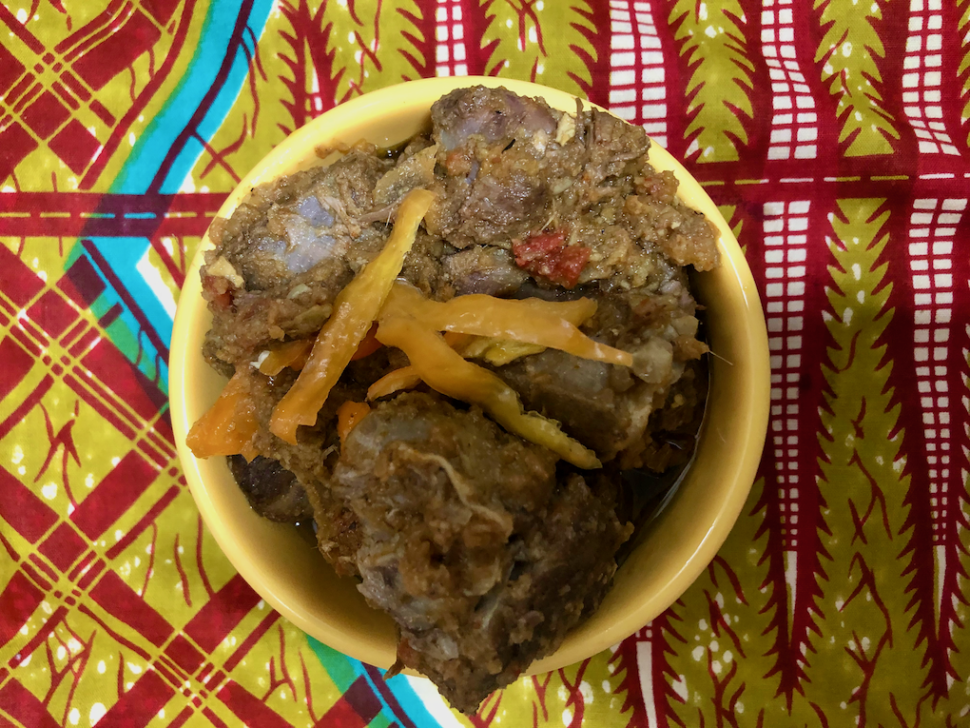
Travel Noire: How have your travels influenced your businesses?
Beatrice: At 19-years-old, I took a trip to Nigeria to learn more about my relatives, and connect more with my roots. I went to a market in Port city to see how they operated. In later travels to Morocco, I was able to see how markets are the source of essential food, spices and decor for the community. The market serves as a way to connect with neighbors and spirituality. I hope to recreate a similar experience here in New York.
